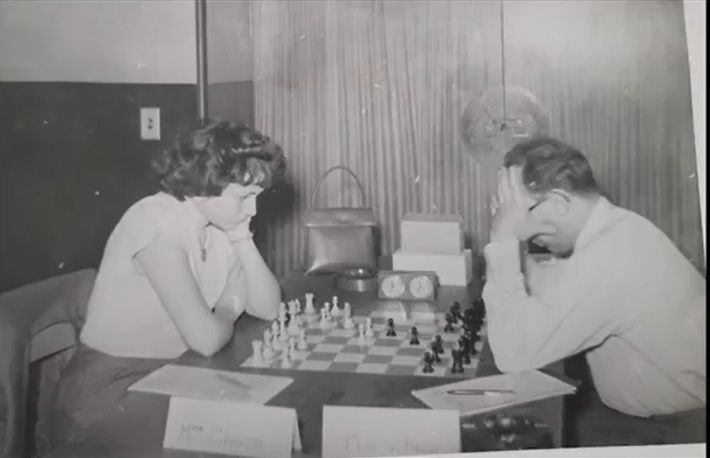
Isabelle Choko: The Holocaust Survivor Who Became A Chess Champion
This is the incredible story of Isabelle Choko—the woman who endured some of the worst hardships and, yet, had the willpower to carry on with her life making notable achievements in chess.
She survived the Holocaust, extreme famine, and coped with the traumatic loss of her family at a young age. However, nothing stopped Isabelle from pursuing her passion for chess. She further defied gender biases, unintimidated by the prevalent dominance of men in chess including their laughter and off-putting behavior toward her.
In 1956, Isabelle went on to win the French Women’s Chess Championship and made appearances on the front covers of popular newspapers next to none other than Marilyn Monroe!
Isabelle Choko (born Izabela Sztrauch) was born in Lodz, Poland in 1928. She was only eleven years old when in 1939, the Nazis invaded Poland. Isabelle, together with her family, was imprisoned at Lodz Ghetto shortly after. “Life at the ghetto was very hard,” says Isabelle. It was a life marked by starvation, sickness, and death. Isabelle’s father died of hunger and deprivation in Lodz.
In 1944, when the ghetto was liquidated, Isabelle and her mother were deported and imprisoned at Auschwitz-Birkenau, one of the largest Nazi-German concentration and extermination camps. What saved their lives prior to deportation was a French prisoner, who noticed that Isabelle spoke a little French. He whispered in her ear, “Watch out young girl, watch out. You see, over there are trains that will transport you to Auschwitz ... On your left, when you arrive, it is life. On your right, it is death.” Isabelle, together with her mother, chose to exit the train on the left.

During the evacuation from Auschwitz in early 1945, Isabelle and her mother were deported to the Bergen-Belsen concentration camp. There, weakened by famine and sickness, Isabelle’s mother passed away in her daughter’s arms. Isabelle was only 16 years old.

By the time Bergen-Belsen was liberated by the English army in April 1945, Isabelle weighed only 55 pounds. She was so weak, she could barely open her eyes. Isabelle was treated at the English hospital, where she earned the nickname of “la jeune fille aux yeux bleus” – a young girl with blue eyes. Her eyes, despite seeing so much horror, did not lose their beauty.
When Isabelle recovered, she went on to live in France with her uncle. Shortly after, she met her future husband, Arthur Choko, with whom she later had three children. “I worked a lot when I arrived in France,” says Isabelle. “And one day, I saw a chess set. I remembered that in the ghetto I learned how to play chess.” From that point on, Isabelle’s passion for chess blossomed. “First I played with a group where I was just a simple chess player,” says Isabelle. “Then, little by little, people would notice me.”

“And then there was Tartakower,” continues Isabelle, “who noticed me and wanted me to become a champion.” What GM Savielly Tartakower saw in Isabelle was her immense willpower: the drive to carry on, and find joy in life, despite all that she’s been through. He dedicated one of his chess books to Isabelle with these words:

“Vouloir, c’est pouvoir!” (when there is a will, there is a way!) wrote Tartakower. He recognized Isabelle’s strong will to fight and win—he foresaw a future chess champion. Tartakower trained and guided Choko to become a very strong chess player. And in 1956, when she won the French Women’s Chess Championship, Tartakower’s prediction came true.

This was the 1950s, an era where chess was played mostly by men. Women in chess were so rare, they were an “object of curiosity.” Isabelle was made fun of. “What is she doing here?” some would ask. “And when they played me, they would go for a walk,” laughs Isabelle. “Yes, but when they came back, it was checkmate! Et voila! Surprise! So then they understood that women could also play chess!”

Parting Notes
“Chess prepared me in life in the sense that you need to fight to win,” says Isabelle. “It forces you to have a sense of what is to come and what is going to happen.” If there is one piece of advice she could give to youth it would be that “they pay attention to what is around them. That they find interest in life [and] do what they can to make their lives interesting. For themselves first and then for others.”






